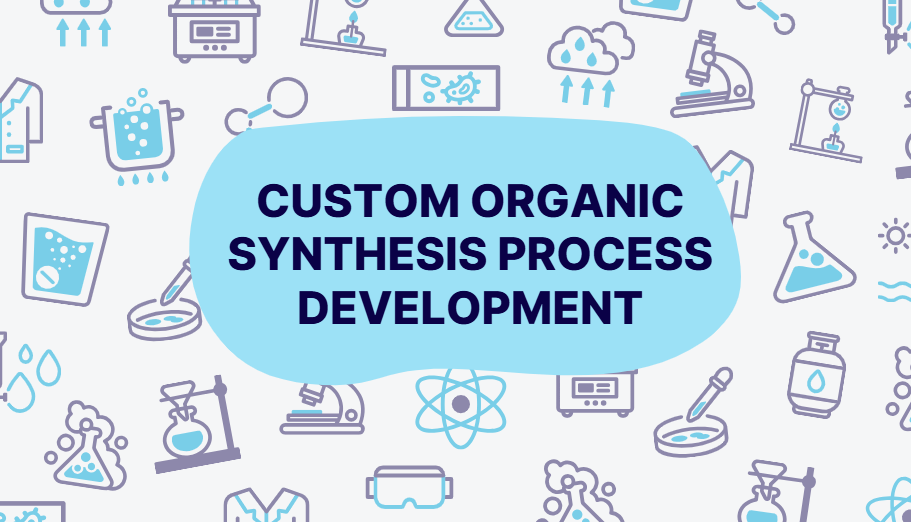The groundbreaking success of mRNA-based vaccines has sparked a surge in interest in mRNA therapeutics, expanding their potential beyond vaccines to include treatments for cancer, genetic disorders, and infectious diseases. A critical challenge in mRNA therapy is the safe and efficient delivery of fragile mRNA molecules to target cells. Custom polymer synthesis has emerged as a transformative solution, enabling the development of innovative delivery systems that address stability, targeting, and release challenges.
In this article, we delve into how custom polymer synthesis advances mRNA delivery systems, its methodologies, and its future potential in revolutionizing mRNA therapeutics.
The Role of Polymers in mRNA Delivery
Why Are mRNA Delivery Systems Needed?
mRNA is inherently unstable and prone to degradation by nucleases in the body. Delivery systems:
- Protect mRNA from enzymatic degradation.
- Facilitate cellular uptake.
- Enable endosomal escape for cytoplasmic release.
Polymers as Delivery Vehicles
Polymers offer versatility in designing delivery systems with:
- Protection: Encapsulation of mRNA in polymeric matrices shields it from degradation.
- Controlled Release: Polymers enable the sustained and targeted release of mRNA.
- Customizability: Functional groups can be tailored for specific cellular targets or physiological environments.
Advancements Through Custom Polymer Synthesis
Custom polymer synthesis tailors materials to address the unique requirements of mRNA delivery, including biocompatibility, biodegradability, and stability. Key advancements include:
1. Design of Biocompatible Polymers
- Poly(lactic-co-glycolic acid) (PLGA): Biodegradable polymers with FDA approval for drug delivery applications.
- Polycations: Polymers like polyethyleneimine (PEI) are modified to balance charge density for efficient mRNA encapsulation while minimizing toxicity.
2. Functionalization for Targeted Delivery
- Ligand Conjugation: Attaching targeting ligands like antibodies or peptides to polymers ensures precise delivery to specific cell types, such as cancer or immune cells.
- Responsive Polymers: Custom polymers can be engineered to respond to pH, temperature, or enzymatic activity, enabling release in specific microenvironments.
3. Improved Endosomal Escape
Polymers such as dendrimers and ionizable lipids are designed to facilitate endosomal escape, preventing degradation and ensuring mRNA reaches the cytoplasm.
Key Methods in Custom Polymer Synthesis
- Ring-Opening Polymerization (ROP):
- Enables the synthesis of biodegradable polymers like PLGA with precise molecular weight control.
- Atom Transfer Radical Polymerization (ATRP):
- Produces polymers with uniform structure and functional groups for controlled release properties.
- Click Chemistry:
- Facilitates the attachment of functional ligands to polymers for enhanced targeting.
Applications of Custom Polymers in mRNA Delivery
1. Vaccines
- Custom polymers stabilize mRNA vaccines and enhance their cellular uptake.
- Example: Polymers used in lipid nanoparticles (LNPs) for COVID-19 vaccines.
2. Cancer Immunotherapy
- Delivery systems using polymers like PEGylated lipids ensure efficient mRNA delivery to tumor cells, boosting anti-tumor immune responses.
3. Gene Therapy
- Tailored polymers allow the delivery of therapeutic mRNA for correcting genetic disorders, such as cystic fibrosis or sickle cell anemia.
4. Infectious Disease Therapies
- mRNA encoding for therapeutic proteins can be delivered using custom polymers to treat diseases like HIV and influenza.
Advantages of Custom Polymer-Based mRNA Delivery Systems
- Enhanced Stability: Custom polymers protect mRNA from nuclease degradation.
- Reduced Immunogenicity: Polymers can be designed to minimize immune responses.
- Improved Efficiency: Tailored polymers enhance cellular uptake and transfection efficiency.
- Biodegradability: Polymers degrade into non-toxic byproducts, ensuring safety.
Challenges and Solutions
Challenges
- Toxicity: Some polymer formulations may induce cytotoxicity or immune responses.
- Scalability: Complex synthesis methods can hinder large-scale production.
- Regulatory Hurdles: Ensuring compliance with safety and efficacy standards.
Solutions
- Developing polymers with optimized molecular weights and surface functionalities.
- Advancing green synthesis methods for scalable and eco-friendly production.
- Conducting extensive preclinical and clinical evaluations.
Future Directions
- Smart Polymers:
- Stimuli-responsive polymers that release mRNA only under specific physiological conditions.
- Nanotechnology Integration:
- Combining polymers with nanoparticles for multifunctional delivery platforms.
- Personalized Medicine:
- Custom polymer synthesis enables the creation of patient-specific mRNA delivery systems.
- Regenerative Medicine:
- Delivering mRNA for tissue repair and organ regeneration.
ResolveMass Laboratories: Your Partner in Custom Polymer Synthesis
ResolveMass Laboratories specializes in custom polymer synthesis for advanced drug delivery applications, including mRNA therapeutics. Our services include:
- Design and Development: Tailoring polymers for optimal mRNA encapsulation and delivery.
- Analytical Characterization: Ensuring quality and performance with state-of-the-art techniques.
- Regulatory Support: Assisting with compliance for clinical applications.
Explore Our Services
- Custom Polymer Synthesis
- mRNA Delivery Solutions
- Advanced Material Characterization
Contact Us to collaborate on innovative mRNA delivery projects.
References
- Sahin, U., et al. (2014). mRNA-based therapeutics: Developing a new class of drugs. Nature Reviews Drug Discovery. DOI: 10.1038/nrd4278
- Kulkarni, J. A., et al. (2019). Lipid nanoparticles enabling gene therapies: From concepts to clinical utility. Nucleic Acid Therapeutics. DOI: 10.1089/nat.2019.0798
- Riley, R. S., et al. (2021). Delivery technologies for mRNA therapeutics. Nature Reviews Drug Discovery. DOI: 10.1038/s41573-020-00078-4


